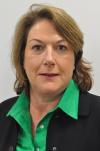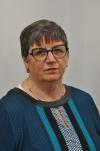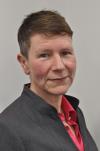Voluntary Assisted Dying Commission
Nominations from prospective members of the Voluntary Assisted Dying Commission – Information Package
Role of the Commission
The Voluntary Assisted Dying Commission (the Commission) is established under the End-of-Life Choices (Voluntary Assisted Dying) Act 2021 (the Act).
The Commission is an independent oversight and decision-making body with responsibility for performing the functions and exercising the powers conferred upon it by the Act, and other Acts.
Commission’s functions include to:
- monitor the Act’s operation, and
- provide an appropriate level of assistance to people who wish to access voluntary assisted dying but who are prevented from, or hampered in, accessing the process because of their personal circumstances, and
- establish and maintain lists of registered health practitioners who have completed the Tasmanian Voluntary Assisted Dying Training, who are willing to be primary medical practitioners, consulting medical practitioners, administrating health practitioners, or to dispense VAD Substances under the Act,
- collect statistical information in relation to the Act’s operation,
- distribute information relating to the functions of the Commission, and the operation of the Act,
- investigate suspected contraventions of the Act,
- review certain decisions,
- determine one or more substances to be VAD Substances,
- approve the Tasmanian Voluntary Assisted Dying Training and forms for use under the Act, and
- issuing, amending and revoking VAD Substance Authorisations.
The Commission is required to produce an annual report, which is required to be tabled in Tasmanian Parliament.
The Commission is supported in the performance of its functions by Department of Health employees.
Commission Member Biographies
The members of the Voluntary Assisted Dying Commission are:

Louise was a Legal Practitioner in private practice for over 38 years, most recently as a Director of Ogilvie Jennings, practising in the area of estate planning, estate administration, property law and commercial law. Appointed to act as an Independent Children’s Lawyer in the Federal Circuit Court and Family Court of Australia and as a Separate Representative in the Magistrates Court, Louise is skilled in the effective application of legal frameworks in the interest of fair and just outcomes for vulnerable Tasmanians.
In November 2024, Louise was appointed Deputy President of the Tasmanian Civil & Administrative Tribunal (TASCAT) in the Protective Division, having previously sat as a sessional member.

Annette is a medical practitioner with more than 30 years’ experience in general practice.
With over 25 years of active involvement in professional organisations, Annette holds membership and/or positions with the Australian Medical Association, the Royal Australian College of General Practitioners, the Tasmanian Civil and Administrative Tribunal, the Australian Health Practitioner Regulation Agency panel of approved doctors and is a Deputy Director of the Professional Services Review.
Having worked as a GP Liaison Officer at the Royal Hobart Hospital, Annette has experience in facilitating and improving a patient’s journey between the Tasmanian health system and the community. Her Master of Leadership completed through the University of Tasmania provides her with thorough knowledge of health management and communication.

Kim served as Tasmania’s Public Guardian for over five years, and has vast experience in various high-level health, social justice and human rights roles as a member of a range of boards and tribunals.
This experience includes work with the Guardianship and Administration Board, the Mental Health Tribunal, the Tasmanian Board of the Medical Board of Australia, the Health Practitioners Performance and Standards Panel, and the Social Security Appeals Tribunal.
As the Public Guardian and as an active and long-term member of the Guardianship and Administration Board, Kim has significant experience in dealing with matters concerning an individual’s capacity for decision-making and in scrutinising circumstances in which vulnerable individuals may be coerced or exploited.

David’s forty-year career in health care was principally as a Consultant Physician specialising in Medical Oncology and Palliative Care.
Working in the North and Northwest of Tasmania, David was the first Medical Director of the Hospice in Launceston, and the Director of Medical Services at St. Vincent's Hospital Launceston. After these roles, David became the Chief Medical Officer in the Tasmanian Department of Health (previously known as the Chief Health Officer) for over 7 years.
Returning to clinical practice as a Senior Staff Specialist in Medical Oncology at the Royal Hobart Hospital, David became Head of Department for Medical Oncology, and the Strategic Director of Cancer and Blood Services at the Royal Hobart Hospital ten years later. Prior to his retirement from clinical practice, David worked as a Consultant Physician with the Specialist Palliative Care Service

Elizabeth is the Director of Allied Health Services for the North West Region of the Tasmanian Health Service. Elizabeth’s professional background is as a social worker, holding an undergraduate and a research master’s degree in Social Work in addition to an Executive Master of Business.
Elizabeth has been a social worker and leader for over 20 years. Elizabeth has held roles in Child Protection, Domestic and Family Violence, and worked extensively in the health system in a diverse range of areas. These experiences have allowed her to develop a patient centred approach and a collaborative style to leading large teams. Elizabeth is grateful for the work with hundreds of patients over the years that have taught her the importance of empowering individuals, advocating for change, and understanding the privilege of working with people at the most difficult times in their lives.
Elizabeth is passionate about equity of access to health services for rural and remote communities across Tasmania.

A Professor of Law at the University of Tasmania’s Faculty of Law, Margaret has a professional reputation as a Law Scholar, recognised by her appointment in 2015 as a Fellow of the Australian Academy of Law.
With an early academic career focussed on the legal aspects of end-of-life, stemming from her PhD research, Margaret had her work published by Oxford University Press Voluntary Euthanasia and the Common Law, in 1997.
In addition to her research expertise in health law and ethics, Margaret has experience on the Guardianship and Administration Board for more than 5 years, the Anti-Discrimination Tribunal for more than 15 years and ethics committees including the University Human Research Ethics Committee for 10 years, the Royal Hobart Hospital’s Human Research Ethics Committee for 4 years and the Royal Hobart Hospital’s Clinical Ethics Committee for 7 years.
Terms of reference
Review of a Reviewable Decision
- Guideline for Determination of Persons with a Special Interest
- Application for Review of a Decision- Fact Sheet
- Application for Review of a Decision
- Application for Review of a Decision – Fact Sheet Easy Read
Reports and updates
- Voluntary Assisted Dying Commission Annual Report 2023-24
- Voluntary Assisted Dying Commission Annual Report 2022-23
- Voluntary Assisted Dying - update 10 March 2023
- Voluntary Assisted Dying Six Month Report of Operations
Further information
For more information, please email [email protected]
